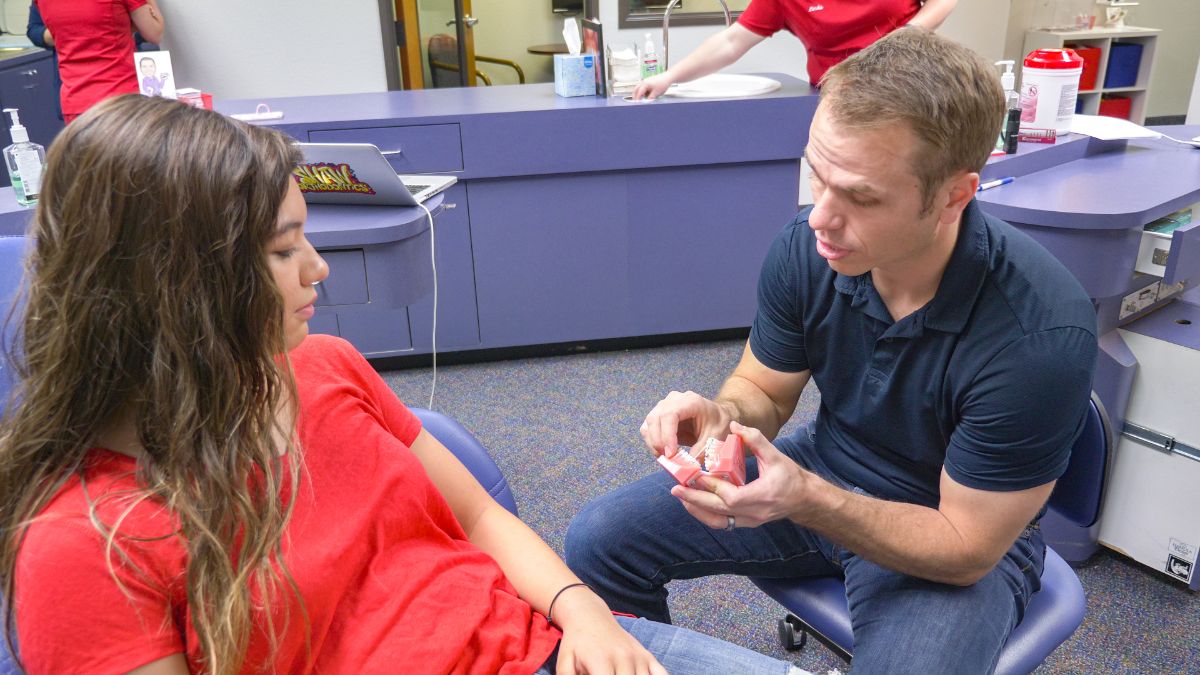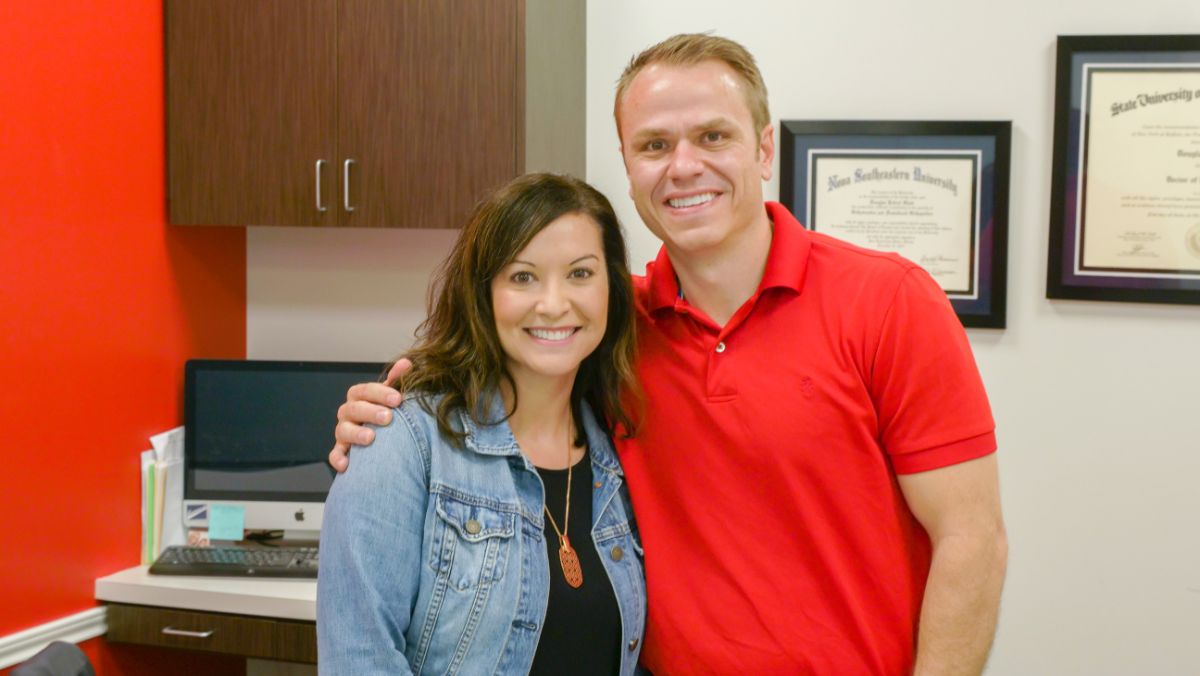When you first start orthodontic treatment at Shaw Orthodontics, you’ll be able to learn a lot about your smile and everything that goes into the process of straightening it. As you go through your orthodontic journey, we’ll explain what we’re doing and why we’re doing it every step of the way. We want you to feel confident in your treatment plan and informed enough to handle any issues that may come along during the course of your treatment. As you’re maintaining your treatment from home, you may be wondering how to avoid orthodontic emergencies. We’ve put together a guide just for you!
As we deal with the closures brought about by COVID-19, this knowledge can ensure you’re calm and prepared for any unexpected emergencies. Our practice is currently limited to only seeing patients who are experiencing an orthodontic emergency. This includes, but is not limited to:
- serious injury or trauma to the face, neck, mouth, teeth, or gums
- swelling, infection, or bleeding of the gums or mouth
- severe pain or discomfort in your teeth, mouth, face, or neck
When it comes to true orthodontic emergencies, most tend to occur when we least expect them and are often unavoidable. Thankfully, there are many ways you can be more conscious of your oral health and your orthodontic appliance in your day-to-day life. We’ve put together a guide on how you can minimize your risk of an emergency situation while our office is closed. Keep reading below to find out more!
Pay attention to what you eat
For many patients, food restrictions end up being one of the biggest learning curves, but these guidelines are in place to protect your teeth and your appliance. Crunchy and sticky foods can wreak havoc on the brackets and wires of metal braces. It’s also easy for food debris to get stuck in your braces, which can lead to bacteria growth. While you’re going through orthodontic treatment, you’ll need to avoid things like:
- chips
- ice
- gum
- some raw fruits and veggies
- popcorn
- caramel
- and many types of candy
We know it can be frustrating eliminating some of your favorite foods and snacks. Just remember: this won’t last forever! All of your hard work will be more than worth it when you get your braces removed and you see the smile you’ve always dreamed of!
Take care of your smile if you play sports
While most schools and community sports are currently on hold, many athletes are finding other fun ways to keep their skills up at home. Whether you’re tossing a ball around in the backyard or finding other ways to stay active, it’s essential that you protect your smile!
The most effective way to prevent any accidental damage to your teeth, gums, or braces is by wearing a mouthguard. We recommend wearing them even for low-contact sports, since it only takes a small amount of pressure to your braces to irritate your mouth or cause small cuts to your gums and cheeks. Using a mouthguard even if you’re only practicing at home will give you extra cushion and keep your lips from bumping against your teeth and braces.
Although regular mouthguards do provide basic protection, we typically prefer an orthodontic mouthguard for our patients in braces treatment. Non-orthodontic models are made of a type of thermoplastic that heats up in our mouth and molds to your teeth. Because of this, they aren’t able to adjust as your teeth shift during treatment, and can ultimately work against the straightening process.
Orthodontic mouthguards, on the other hand, are made of a high-grade silicone that provides protection against any impact-related damage. This design also helps to prevent painful scenarios, such as your lip getting caught in your braces. Because they’re made to fit over your braces, they tend to be a little bigger than standards mouthguards. However, they’re just as comfortable to wear! There are plenty over-the-counter options for mouthguards online these days, making it easy to find one that fits your needs.
Maintain your oral hygiene routine
Oral hygiene plays an active role in total-body health, but if you’re currently in orthodontic treatment, it’s especially important! We recommend you brush your teeth at least twice a day, for two minutes each time. For the best results, brush after eating and before bed. And don’t forget to floss!
If you’re wearing braces, you’ll need to pay special attention to the spaces between your brackets and gums, since food particles can easily get stuck there. Be careful to get in between the wires and teeth, too. Some patients find this somewhat difficult to do effectively. If that’s the case for you, an interdental brush or waterpik are great tools to help remove plaque and debris from those hard-to-reach areas. Just remember that these are supplemental tools only! They shouldn’t take the place of your regular dental hygiene routine.

Treat non-emergency issues from home
We encourage all of our patients to have a solid plan in place in the case of any orthodontic emergencies. Fortunately, many minor complications can be treated from the comfort of your own home! These remedies can be quite effective for lessening or relieving your symptoms from the following non-emergencies.
Mouth sores
While orthodontic treatment itself doesn’t cause mouth sores, some patients are unfortunately more susceptible to them while they’re in braces. You can get relief from these painful ulcers on your cheeks, lips, tongue, or gums by swabbing a small amount of topical anesthetic directly to the sore.
Loose or broken brackets, bands, or wires
If any part of your braces comes loose or breaks during treatment, let us know as soon as possible! We’ll set up a virtual consultation with Dr. Shaw so we can determine what your next steps should be. If a band or bracket is broken but still attached to the wire, try to leave it alone until you speak with us. Don’t connect any elastics to it during this time.
If any piece of your braces has broken off completely, place it in a secure bag and we’ll advise you on what to do. If you’re experiencing irritation, you can cover the component that’s bothering you with a small amount of orthodontic wax for relief.
Misplaced archwire, bracket, or tie
As your treatment progresses, your teeth will begin to move towards the desired positions. This can sometimes cause the archwire connecting them to shift. If this happens, you may find it pokes out a bit near the back of your mouth, irritating your cheeks or gums. If this happens, you can use the eraser end of the pencil or a clean cotton swab to gently move it back to where it’s meant to be.
Similarly, wires or ties that have moved can often be gently manipulated back into place using a pair of clean tweezers or the eraser end of a pencil. A pinch of orthodontic wax over the parts that are poking out can help relieve the immediate discomfort.
Tooth pain or loosening
It’s normal for your teeth to loosen slightly during orthodontic treatment in order to accommodate the movements we’re trying to achieve. Occasionally, this can cause mild tenderness or discomfort. Salt water rinses are a tried and true remedy for relieving soreness! Simply mix one teaspoon of salt in 8 ounces of warm water, then swish it around your mouth for about 30 seconds before spitting it out. A warm washcloth or heating pad placed on the outside of your jaw can offer some pain relief as well.
What about Invisalign patients?
Invisalign patients aren’t quite as at risk for orthodontic emergencies since the aligners aren’t constructed with wires and brackets. However, we know it’s still possible to break or lose an aligner! If this happens to you, contact us as soon as possible so we can make arrangements to keep your treatment plan on track. In the meantime, continue wearing your aligners as directed by Dr. Shaw, and keep up a good dental hygiene routine. You should also be caring for your aligners by cleaning them gently and keeping them in a case when they’re not in your mouth.

The expert team at Shaw Orthodontics is here for you and your smile
If you believe you’re experiencing a true orthodontic emergency, please don’t hesitate to reach out to us immediately! Although our office is currently closed, Dr. Shaw and the team are still available to meet your needs. Our entire team is dedicated to providing you with a safe and stress-free orthodontic experience, while keeping everyone safe and healthy!
If you’re experiencing an orthodontic emergency or have any concerns about your treatment, we’re here to help! Get in touch with our office and we’ll be happy to help with whatever needs you may have. It’s our top priority to keep you happy, healthy, and smiling!

